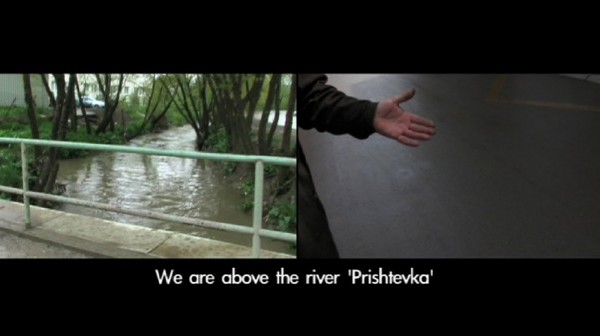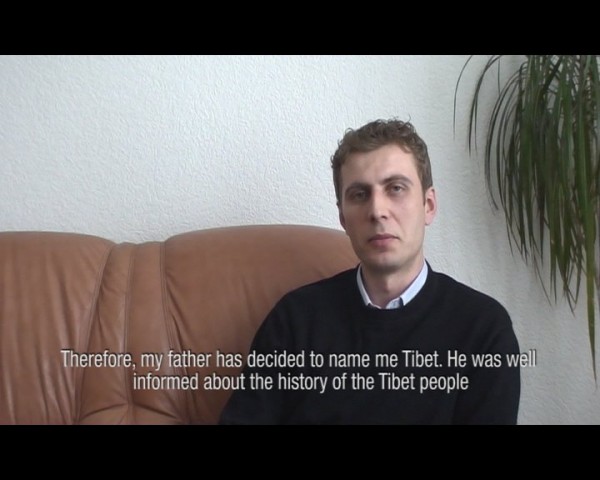-
Naming and Necessity: Alban Muja at UnionDocs
by Chris Reitz November 6, 2010

I met Alban Muja back in 2006 while on a trip in Albania and Kosovo researching a fledgling exhibition. That show never really came together, but the research led me to some terrific artists working in and around issues of everyday political aesthetics in ways that are foreclosed for contemporary New York video. These artists are part of a generation of Albanians for whom successful art making is marked by absence. The slightly relaxed borders of their own countries and the new ease of movement within the EU meant that successes from past generations like Albanian Anri Sala and Serbian Marina Abramović could more easily integrate into a global community of artists. This had the effect of opening Albania and Kosovo to an imagined international community, but it also meant that the local art scene became drained of influential practitioners. For the younger generation of artists making art became inextricable from issues of movement and international identity, and Alban Muja was one of those artists.
Currently an artist in residence at UnionDocs through CECArtslink, Muja has organized his work to date loosely around themes of movement, naming, and territory. It is an unsurprising gesture, perhaps, for an artist born in Kosovo, a contested political no place with an ambiguous identity, impermeable borders, and a recent history of ethnic cleansing. What is surprising, however, is that Muja locates these themes in the personal and private lives of his subjects to the degree that the political and historical are rendered distant or even obscure. For Palestina for example, Muja interviewed an Albanian girl whose mother named her “Palestine” after hearing a news story about the tragic death of a young Palestinian couple. The interview does not dwell on the overtly political, focusing instead on what it is like to have such a strange name, what it means to be proud of a name, and what happens to a subject’s identity when she is named after people and places she knows very little about. Similarly, Tibet is the story of a Kosovar Albanian living in Switzerland who was named after the Chinese territory. In each of these videos naming and the lived experience of bearing a name become intimate activities rife with pride, indifference, identification, miss-identification, and even violence.

Other works by Muja struggle to find orientation and place in both the everyday and the artistic. For Blue Wall, Red Door the artist investigates the way that Kosovars navigate their towns. Citing the lack of consistency in street names, the video explores how notions of location and direction do not translate exactly in a place like Kosovo. Where locals orient themselves based on known locations and landmarks, any visitor attempting to navigate Kosovar towns will find maps and addresses useless. Conversely, Free Your Mind is the artist’s attempt at navigating the territory of art history. As a young video artist working in a country where “video art” does not exist, the lessons and inspiration of western art history become a hindrance rather than a map for art making. Muja recites as many names as he can remember in an effort to eliminate them from his mind and proceed with his own process—but of course the names pile up, becoming the work itself, in the end.
This Sunday at 7:30 pm Alban will be screening these works at UnionDocs in Brooklyn and will entertain questions afterward from curator Eriola Pira and me. If you are around please join us for the discussion.

